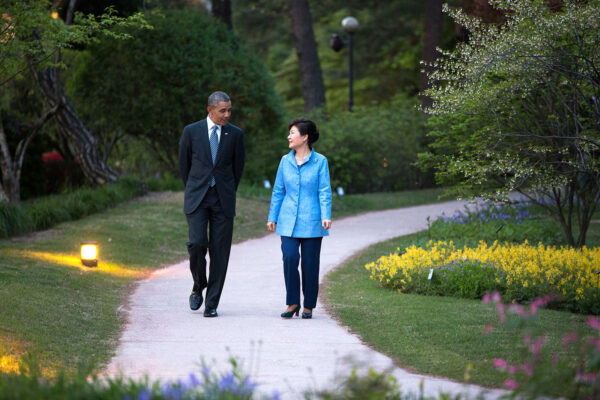
America should rethink its alliance with South Korea, writes Adam Garfinkle in The American Interest.
Circumstances have changed
During the Cold War, the United States calculated that defending freedom and democracy in South Korea was worth fighting for, even if it meant nuclear war.
That is no longer true.
- No Maoists remain in China.
- North Korea is still a communist dictatorship, but it is decoupled from any larger geostrategic stakes, except for those kept artificially alive through obsolete alliance structures.
- South Korea’s prosperity stands as a vindication of American policy acumen and patience.
- The South Korea military is superior in every way to the rust-bucket mass army in the North, except for one thing: nuclear weapons.
American troops now make South Korea less safe
The Kims didn’t develop nuclear weapons to protect their dynasty from South Korea. They developed nuclear weapons to protect themselves from America, “which it imagines, projecting its own instincts were circumstances reversed, actively seeks regime change.”
Kim Jong-un doesn’t (or needn’t) fear a South Korean-backed coup d’état. The government in Seoul is doing whatever it can to put blue sky between itself and the growling rhetoric coming out of Washington DC.
The presence of American troops — some 35,000 — in South Korea now makes the country less, not more, secure and it inhibits America’s policy options.
Those troops, Garfinkle points out, are hostages to North Korea should the United States ever attack it. They raise the risk of nuclear war if the North fears losing a conventional conflict. They do not deter the North so much as they deter America itself.
So long as South Korea hosts significant numbers of American troops, it has a veto over American policy.
That did not matter much before North Korea developed missiles which could reach the United States. Now American policymakers would rather have the freedom to — to coin a phrase — put America first.
Refuting the arguments against
Objections to Garfinkle’s proposal are that it would reward Chinese revisionism and endanger Japan.
That is why, he writes, a change in America’s relationship with South Korea would require a tightening of America’s relationship with Japan.
But that is good and necessary work to be done in any event, not least to provide sufficient additional reassurance so that Japanese leaders do not conclude that Japan needs its own independent nuclear deterrent.
The Japanese, moreover, have never been keen on America’s preference for a tripartite security arrangement in Northeast Asia.
As for China, it might put more pressure on Pyongyang if America removes its troops.
One of the reasons it hasn’t so far is that it fears reunification of the peninsula on South Korean terms would put American troops on its border. “Take that prospect away and China’s calculations change.”
Closing argument
US Cold War-era policy toward Korea, and in Asia as a whole — save for the tragic detour in Vietnam — succeeded brilliantly. The challenge was faced and won. That has rendered the [American-South Korean] alliance a relic of an age passed by, one that has now become an encumbrance on US policy in a changed military-strategic situation. It is time to declare the policy a joint success and for both parties to look to the future with more mature and hopefully wiser eyes.
